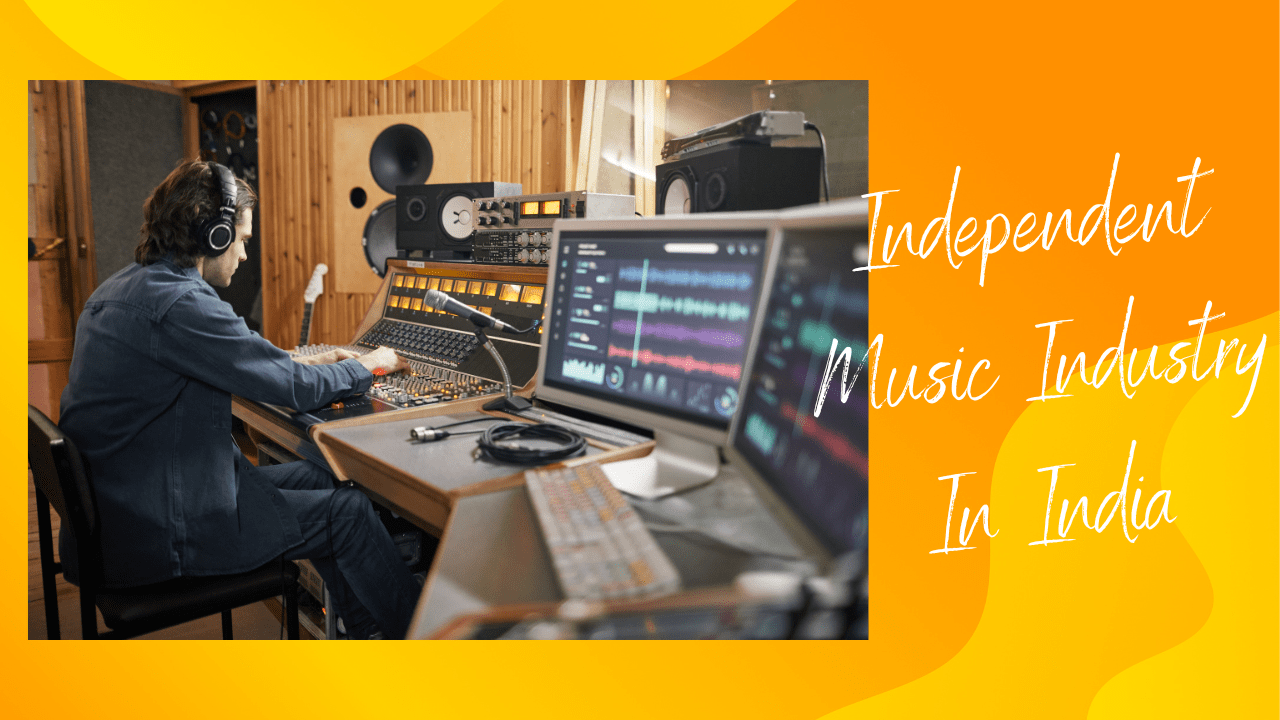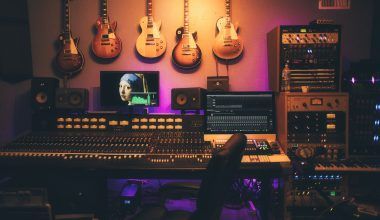The independent music industry in India has grown a lot in recent years. Once, Bollywood music was the main focus. But now, independent artists are making their mark. This change shows that people want different types of music. They want music that feels real. In this blog, we will talk about how the independent music industry in India has changed. We will also look at the challenges and opportunities it offers.
The Evolution of Independent Music in India
The story of independent music in India is interesting. In the past, film music ruled the industry. Independent artists had little space. But now, digital platforms and social media have changed things. Platforms like YouTube, Spotify, and Apple Music allow artists to share their music with the world. They do not need big music labels to get noticed.
This change has given artists more freedom. They can create different kinds of music. The independent music industry in India is no longer small or underground. It has become a big part of the music world. Music festivals and live shows also help indie artists show their talent. They give artists a place to perform and connect with fans.
The way people listen to music in India has also changed. They now have access to music from all over the world. This makes them want to hear new and unique sounds. As a result, more people are listening to independent artists. These artists offer fresh music that is different from mainstream songs.
Key Players in the Independent Music Industry
- Independent Artists: These artists are the heart of the independent music industry in India. They bring new sounds and ideas. They often write, compose, and produce their own music. This gives them full control over their work. They can explore and create freely, without any limits.
- Music Platforms: Platforms like Gaana, JioSaavn, and Wynk have special sections for independent music. These platforms help indie artists get noticed. They provide a place where artists can share their music and grow their fan base. Global platforms like Spotify and Apple Music also help Indian indie music reach people worldwide.
- Music Festivals: Festivals like NH7 Weekender and Ziro Festival of Music are important for independent musicians. These events give artists a stage to perform on. They also offer a chance to meet industry professionals, like producers and managers. These connections can lead to new opportunities, like collaborations and sponsorships.
- Music Labels and Management: While many indie artists work alone, some team up with independent labels. These labels help with distribution, marketing, and planning. They make it easier for artists to focus on making music. Labels like Big Indie Records and Pagal Haina support indie artists. They help them understand the music industry better.
Challenges Faced by Independent Artists
Even though the independent music industry in India is growing, artists still face many challenges:
- Financial Constraints: Independent artists do not have the money that big labels do. They have to pay for everything themselves, from recording to marketing. This can be expensive. Many artists use crowdfunding or their own money to pay for these costs.
- Limited Reach: While digital platforms can reach many people, it is hard for indie artists to stand out. They have to compete with popular mainstream artists. This requires smart marketing and a loyal fan base. Also, sometimes the algorithms on these platforms favor well-known artists. This makes it even harder for new indie artists to get noticed.
- Lack of Industry Support: The independent music industry in India does not have the same support system as mainstream music. Indie artists often do not have access to professional studios or experienced managers. There are also fewer awards and events for indie music, which makes it hard for these artists to get recognized.
- Piracy and Intellectual Property Issues: Piracy is a big problem for independent music in India. People often share music without permission, which hurts the artists. It can be hard for indie artists to protect their work and deal with legal issues. They may not have access to lawyers or other resources.
- Market Saturation and Competition: The rise of digital platforms has brought many new artists into the market. While this is good for diversity, it also means more competition. Independent artists have to work hard to stand out. They need to be creative and find new ways to get noticed.
Opportunities in the Independent Music Scene
Despite these challenges, the independent music industry in India offers many opportunities:
- Creative Freedom: Independent artists can make any type of music they want. They are not controlled by commercial interests. This allows them to explore different styles and genres. They can create music that reflects their personal experiences and values.
- Direct Fan Engagement: Digital platforms and social media help artists connect directly with their fans. They can share updates, answer questions, and get feedback. This helps build a strong fan base. Artists can use Instagram, Twitter, and other platforms to interact with their audience. They can share behind-the-scenes content and live sessions.
- Global Reach: The internet helps independent artists reach people all over the world. They can work with international artists and play at global music festivals. This helps them gain more fans and new experiences. Indie artists in India are also working with musicians from other countries. This mix of styles creates fresh and exciting music.
- Diversification of Revenue Streams: Independent artists can make money in many ways. They can sell their music online, perform live, sell merchandise, and more. Platforms like Patreon and Bandcamp let artists earn money directly from fans. They can also get paid when their music is used in movies, TV shows, and ads.
- Collaborative Projects and Cross-Genre Experimentation: The independent music scene in India is known for collaboration. Artists from different genres often work together. This creates unique music that attracts a wide range of listeners. Indie artists also work with visual artists, filmmakers, and more. This helps them reach new audiences.
The Role of Social Media in Promoting Indie Music
Social media is very important for independent artists. Platforms like Instagram, Facebook, and Twitter help them share news and updates. They can also use these platforms to talk with fans and promote their music. YouTube and TikTok are great for sharing videos and going viral. This can make a big difference in an artist’s career.
Social media helps artists show their personality. They can share behind-the-scenes videos and personal stories. This helps fans feel connected to the artist. Social media also helps artists understand what their fans like. This information can help them create better music and marketing plans.
Social media algorithms often promote engaging content. So, artists who are active and interactive can get more visibility. Collaborating with other influencers and artists can also help. Social media contests, giveaways, and exclusive content can make fans feel special and increase engagement.
The Future of the Independent Music Industry in India
The future of the independent music industry in India looks bright. More artists are choosing to work independently. This means there will be more diverse and high-quality music. Digital platforms and live music festivals are also growing. This gives indie artists more ways to share their music.
Technology is also helping the industry. Tools like AI and data analytics can help artists understand their fans better. They can use this information to improve their music and marketing. AI can also help with music production, making it easier for indie artists to create high-quality tracks.
There is also more support for independent music from the public and private sectors. Grants, scholarships, and competitions for indie artists are becoming more common. This financial support helps artists focus on their music. Collaborations between independent and mainstream artists are also increasing. This is creating a more inclusive music industry.
Conclusion
The independent music industry in India is growing and changing. Independent artists are creating unique and diverse music. They face challenges, but they also have many opportunities. The industry is becoming more diverse and inclusive. This is good for both artists and fans.
Independent music is not just a trend. It is a movement that values creativity and diversity. As more artists join this movement, the industry will continue to grow. For fans, this means more music to explore and enjoy. For artists, it means more freedom to create and connect with their audience. The future of the independent music industry in India is exciting and full of possibilities.
For further reading, explore these related articles:
- Exploring International Music Industry Jobs
- Understanding Copyright Issues in the Music Industry
- How to Deal with Copyright Infringement in the Music Industry: A Comprehensive Guide
For additional resources on music marketing and distribution, visit Deliver My Tune






